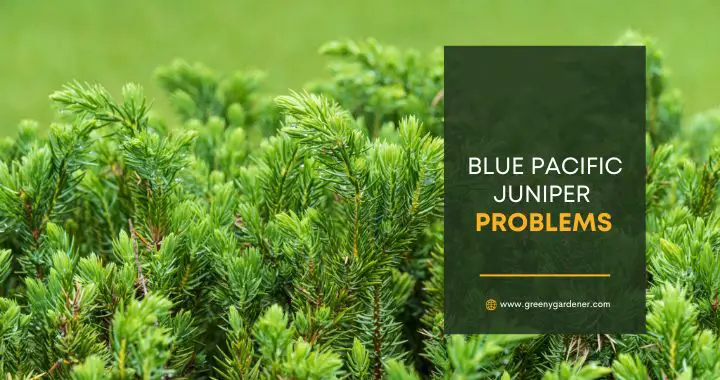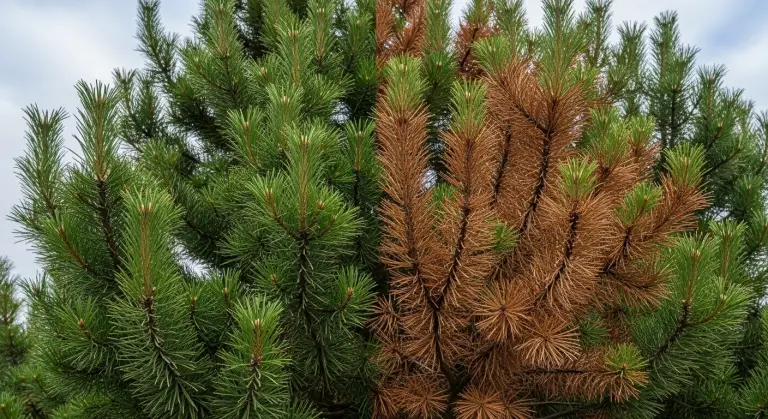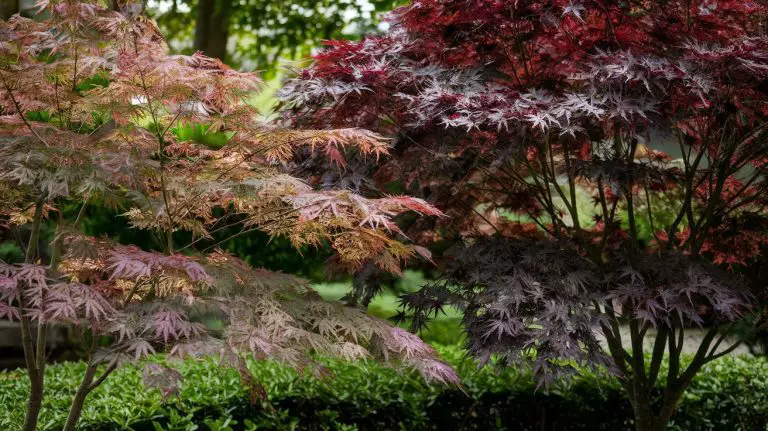Gardening Organic: Your Complete Guide To A Thriving,
Have you ever bitten into a homegrown tomato, still warm from the sun, and marveled at its incredible flavor? There’s a purity to it, a taste that store-bought produce just can’t match. Many of us dream of cultivating a garden that yields this kind of bounty, but the idea of gardening organic can feel overwhelming, tangled in confusing rules and unfamiliar terms.
You might worry it’s too complicated or that you’ll be battling pests and weeds endlessly without chemical sprays. But what if I told you that organic gardening isn’t about restriction? It’s about freedom. It’s about partnering with nature to create a garden that is not only beautiful and productive but also healthier for you, your family, and the planet.
Imagine your backyard transformed into a sustainable, self-regulating oasis, teeming with life and producing the most delicious, nutrient-dense food you’ve ever tasted. This isn’t a far-off dream; it’s completely achievable, even for beginners.
In this complete gardening organic guide, we’ll demystify the process and give you the confidence to start. We’ll walk you through everything, step-by-step, from building incredible soil to managing pests the natural way. Let’s get our hands dirty!
What Does ‘Gardening Organic’ Really Mean?
Before we dig in, let’s clear something up. “Gardening organic” is more than just avoiding synthetic pesticides and fertilizers. At its heart, it’s a holistic philosophy. It’s about creating a balanced ecosystem right in your backyard.
Think of it as working with nature’s playbook instead of against it. The core principle is simple but profound: feed the soil, not the plant. When you nurture a rich, living soil, your plants will have everything they need to thrive, resist disease, and fend off pests on their own.
This approach is the foundation of sustainable gardening organic practices. It means you’re not just growing for this season; you’re improving your garden’s health for years to come, creating a truly eco-friendly gardening organic space.
The Incredible Benefits of Gardening Organic
Choosing to go organic is one of the best decisions you can make for your garden and yourself. The rewards go far beyond just a tasty harvest. Here are some of the biggest benefits you’ll enjoy:
- Healthier, More Nutritious Food: Plants grown in biologically active soil, rich in organic matter, are packed with more vitamins, minerals, and antioxidants. And let’s be honest—they just taste better!
- A Safer Haven for Family and Pets: You can let your kids and pets play in the yard without worrying about them coming into contact with harmful chemical residues. You can harvest a strawberry and eat it right off the vine, worry-free.
- Improved Soil Health and Structure: Organic practices build up the soil. Compost and natural amendments improve its ability to hold water (meaning less watering for you!), prevent erosion, and create a thriving home for beneficial microbes and earthworms.
- Increased Biodiversity: An organic garden is a bustling ecosystem. You’ll attract essential pollinators like bees and butterflies, as well as beneficial insects like ladybugs and lacewings that act as a natural pest control squad.
- Better for the Planet: By avoiding synthetic fertilizers, which can pollute waterways, and embracing practices like composting, you reduce waste and lower your carbon footprint. It’s a small but powerful way to be a steward of the earth.
How to Gardening Organic: A Step-by-Step Guide
Ready to start? Don’t be intimidated! We’ll break down exactly how to gardening organic into simple, manageable steps. This is your foundational guide to getting started on the right foot.
Step 1: Build Your Foundation – The Soil
If you remember one thing, let it be this: everything starts with the soil. Healthy soil is the single most important factor in a successful organic garden. Forget about miracle-grow liquids; we’re building a long-term, living foundation.
Your goal is to create soil that is dark, crumbly, and full of life. The absolute best way to do this is with compost. Compost is decomposed organic matter—what gardeners affectionately call “black gold.” It’s teeming with microbial life and provides a slow, steady release of nutrients.
You can make your own compost (a cornerstone of sustainable gardening!) or buy it in bags from a local nursery. Mix a generous 2-4 inches of compost into the top 6-8 inches of your garden beds before planting. Other fantastic soil builders include aged animal manure, leaf mold, and worm castings.
Step 2: Choose the Right Plants for Your Space
Working with nature means selecting plants that are well-suited to your specific climate and conditions. Plants that are happy where they are will be stronger and less susceptible to pests and diseases.
- Go Native: Native plants have adapted over thousands of years to your local environment. They typically require less water and fertilizer and provide crucial food and habitat for local wildlife.
- Pick Resistant Varieties: When buying seeds or seedlings, look for descriptions like “disease-resistant” or “nematode-resistant.” Breeders have developed many varieties of tomatoes, squash, and roses that naturally fight off common ailments.
- Embrace Companion Planting: This is one of the most fun gardening organic tips! Some plants are natural allies in the garden. Planting them together can deter pests, attract beneficial insects, and even improve growth.
- Plant basil near tomatoes to repel tomato hornworms.
- Plant marigolds throughout your vegetable beds to deter pests both above and below ground.
- Plant nasturtiums as a “trap crop” for aphids—they’ll attack the nasturtiums and leave your other plants alone!
Step 3: Watering Wisely and Mulching
How you water is just as important as how much you water. The best practice is to water deeply and infrequently, rather than giving a light sprinkle every day. This encourages plants to develop deep, strong root systems.
Water the soil, not the leaves. Wet foliage, especially overnight, is an open invitation for fungal diseases like powdery mildew. Use soaker hoses or a watering wand to deliver water directly to the base of your plants in the morning.
Your secret weapon for water conservation is mulch! Applying a 2-3 inch layer of organic mulch (like straw, shredded leaves, or wood chips) on top of your soil will:
- Dramatically reduce water evaporation.
- Suppress weeds by blocking sunlight.
- Regulate soil temperature.
- Break down over time, adding more organic matter to your soil.
Your Complete Gardening Organic Care Guide: Pest and Disease Management
Pests and diseases happen, even in the healthiest gardens. But in an organic system, you have an entire toolbox of natural solutions. The key is to be proactive and focus on prevention first. This is the core of any good gardening organic care guide.
Proactive Pest Control: Your First Line of Defense
Before you even see a pest, you can make your garden less inviting to them. This is where gardening organic best practices truly shine.
Invite the Good Guys: Plant flowers like dill, fennel, yarrow, and alyssum to attract beneficial insects like ladybugs, lacewings, and hoverflies. These predators will feast on aphids and other pests for you.
Use Physical Barriers: For delicate crops like broccoli and cabbage, lightweight floating row covers are a lifesaver. They create a physical barrier that prevents cabbage moths from laying their eggs on the leaves, stopping cabbage worms before they start.
Practice Crop Rotation: Don’t plant the same thing in the same spot year after year. Many pests and soil-borne diseases are specific to certain plant families. Rotating your crops confuses them and breaks their life cycle.
Organic Solutions for Common Pests
When you do spot a problem, don’t panic! Here are some simple, effective organic treatments:
- For Aphids & Mites: A strong blast of water from the hose can often knock them off. If they persist, a spray of insecticidal soap (a specially formulated, plant-safe soap) will kill them on contact without harming beneficials long-term.
- For Caterpillars & Worms: The most organic solution is hand-picking them off and dropping them into a bucket of soapy water. For larger infestations, a product containing Bacillus thuringiensis (Bt) is a naturally occurring bacteria that is toxic only to caterpillars.
- For Slugs & Snails: A shallow dish of beer, sunk into the soil, is an irresistible (and final) trap. You can also surround sensitive plants with a coarse material like crushed eggshells or diatomaceous earth.
- For Fungal Diseases (like Powdery Mildew): Prevention is key—ensure good air circulation by properly spacing plants. If it appears, a spray made from 1 part milk to 9 parts water can work wonders. Neem oil is also an excellent organic fungicide and pesticide.
Overcoming Common Problems with Gardening Organic
Embarking on your organic journey is exciting, but it’s helpful to know about a few potential bumps in the road. Knowing about these common problems with gardening organic ahead of time will help you navigate them with ease.
Challenge 1: “It seems slower than using chemical fertilizers.”
This is true, and it’s a good thing! Synthetic fertilizers are like a jolt of caffeine for plants—a quick, unsustainable burst of growth. Organic methods, like using compost, are like a balanced, nutritious meal. They build deep, resilient health in the soil, which leads to stronger, healthier plants over the long run. Patience is your best friend.
Challenge 2: “The weeds are taking over!”
Weeds compete for water and nutrients, but a thick layer of mulch is your number one defense. For those that do pop through, a bit of hand-weeding a few times a week can be a meditative task. Think of it as time to observe your garden up close. A sharp hoe can make quick work of weeds in larger areas.
Challenge 3: “My plant’s leaves are turning yellow.”
This often indicates a nutrient deficiency, most commonly nitrogen. Don’t worry—this is an easy fix! A top-dressing of rich compost, a splash of fish emulsion mixed with water, or an application of an organic, nitrogen-rich fertilizer like blood meal will usually green things up quickly.
Frequently Asked Questions About Gardening Organic
Is organic gardening more expensive?
There can be a small upfront cost if you need to buy bags of compost and organic amendments. However, in the long run, it is significantly cheaper. When you start making your own compost from kitchen scraps and yard waste, you’re creating free, high-quality fertilizer forever. You’ll also spend less on water and won’t be buying any synthetic chemicals.
Can I get the same yield as a conventional garden?
Absolutely! In fact, long-term studies have shown that established organic gardens can often outperform conventional ones, especially during times of drought. Healthy, living soil holds moisture better and provides a steady stream of nutrients, leading to robust, highly productive plants.
How do I know if a fertilizer or pest control product is truly organic?
This is a great question! When buying products, look for the OMRI Listed® seal. This means the Organic Materials Review Institute has independently verified that the product is compliant with organic standards. It’s the gold standard for packaged organic garden products.
What is the single most important of all the gardening organic tips for a beginner?
Focus on your soil. Seriously. Everything else—pest control, watering, plant health—becomes infinitely easier when you start with a foundation of rich, healthy, living soil. Make or buy good compost and use it generously. It is the secret to success.
Your Journey Begins Now
Gardening organic is not a rigid set of rules, but a rewarding journey of observation and partnership with the natural world. It’s about building a resilient, beautiful, and productive space that gives back as much as you put in.
You now have the knowledge and the tools to start. You understand the importance of soil, how to choose the right plants, and how to manage challenges the natural way. The most important step is the next one: to begin.
So grab your trowel, start that compost pile, and embrace the simple joy of working with nature. Your garden—and your dinner plate—will thank you for it. Happy growing!
- Tucson Organic Gardeners Planting Guide – Your Year-Round - July 27, 2025
- Sustainable Gardens – From Bare Soil To A Self-Sufficient - July 27, 2025
- Spinach Gardening Tips: Your Guide To Prevent Bolting & Get - July 27, 2025



